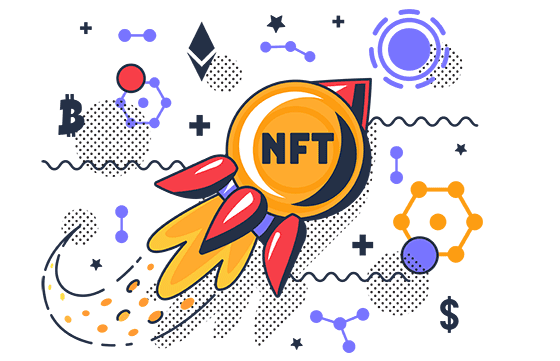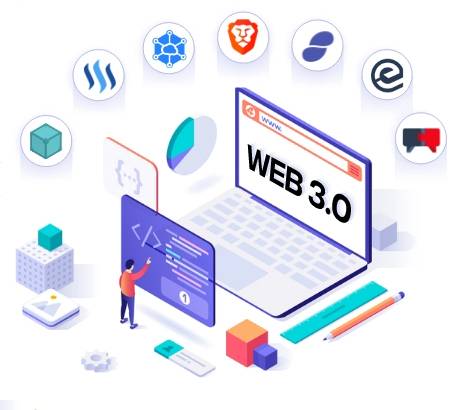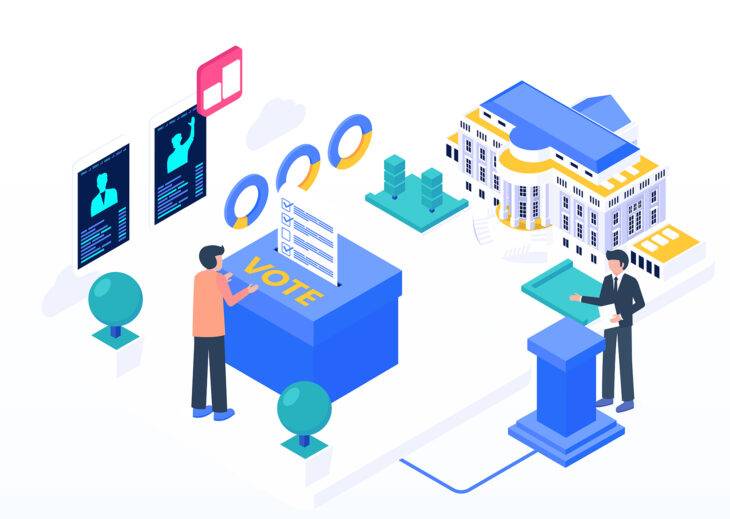The various stages of the internet’s history have resulted in distinct improvements in user experience. Only static web pages with information were available in the early days of the internet, or web 1.0. Social networking sites grew in popularity as web 2.0 emerged. Because of the shift in emphasis among internet services toward encouraging user participation in content creation, user-generated content has thrived. Currently, technical discussions have shifted to topics such as “what is zero-knowledge proof?” Why is it vital for web 3.0 mass adoption?
The release of Web 3.0 marks the beginning of the transition to a decentralized web. At the same time, it is worth investigating whether web 3.0 addresses all of the issues that it was designed to address. The following paragraphs look at the importance of zero-knowledge proof for web3 and how it adds value to the next generation of web solutions and services. You will learn how zero-knowledge proofs work, what makes them unique, and application cases for ZKPs for web3.
Understanding Web3’s History
Understanding the history of web3 is essential before delving into the significance of zero-knowledge proof in web3. What was the motivation for implementing web3 in the first place? A suitable solution could be found in the most critical problem for the web2 environment, namely data. User-generated content has significantly improved the user experience when using web2 solutions. The improved experience, however, came at the expense of users’ privacy. Countless business models have sprung up around the collection and commercialization of personal information.
Currently, personal data has become the world’s most valuable commodity at this level of the internet. Users must provide personal information to gain access to online services. Furthermore, several attacks on personal user data demonstrate how poorly such data is secured.
Web3 showcased the critical value advantages of sovereignty, immutability, and decentralization. Was it successful in resolving the data integrity issue? Unfortunately, the answer is not yet. Data breaches in blockchain networks may demonstrate the significance of ZKP for web3. As a result, to prevent data breaches, it is necessary to seek a solution to establish an increasingly secure flow of data across the internet.
Zero Knowledge Proofs in Web3 Mass Adoption
The first thought that comes to mind when understanding zero-knowledge proofs and how to use them in web3 is why they are so important in the first place. ZKPs ensure an unknown but verifiable data flow. The need for immersive experiences in web3 and advancements over previous versions of the internet demonstrates the significance of ZKPs for web3.
Web3 implies that the internet has been improved over previous editions in order to attract more users. Simultaneously, web3 may increase access to additional online capabilities. As more people join the web3 revolution, malevolent agents will uncover new opportunities for data exposure.
Will people use web3 if they learn that the solutions put their data at risk? This demonstrates how important zero-knowledge proof is for web3 and its future. ZKP is a cryptographic mechanism that allows two parties to communicate without revealing anything. For example, to access your email account, you must enter your email password. The password is only known by the user, but it is frequently intercepted and used in cyber attacks.
In web3, the password is replaced by a private key, making access to private information more secure. Private keys, while more complicated, can also be intercepted. Because there is no information to intercept in the first place, zero-knowledge proofs are the ideal solution for this vulnerability. As a result, ZKPs provide assurance of user information security.
Additionally, transparency is one of the pillars of blockchain, the technology that powers web3. Transparency prevents broadcasting corrupted data, bringing unprecedented reliability to the integrity of the information consumed online. Nevertheless, due to transparency, personal financial and medical information, for example, could be compromised.
ZKP Elements
When establishing ZKP in web3, certain critical parameters must be met, such as:
Soundness- The soundness quality of ZKPs is critical in determining what zero-knowledge proof for web 3.0 is. For example, if a transaction is false, the verifier cannot be persuaded in any other way.
Completeness- The completeness feature also ensures that only a few entities participate in each operation. It means that all parties involved must exercise extreme caution. As a result, the truthful verifier can independently check facts.
Zero-Knowledge- The fact that the prover produced a valid assertion is the only additional data that the verifier has access to when evaluating a claim that has been determined to be valid. The verifier has the ability to make demands on the prover, and the fact that the information is probabilistic suggests that the verifier is persuaded.
Web3 Applications for Zero Knowledge Proofs
Zero-knowledge proofs, or ZKPs, have several applications in the web3 universe. Web3 zero-knowledge proof applications include authentication, blockchain technology, and IoT applications. The following is a list of ZKP applications in the web3 industry.
Blockchain
Blockchain technologies enable decentralization and immutability, but with data privacy tradeoffs. The availability of audit trails and transaction transparency on blockchain networks raised concerns about blockchain’s lack of privacy.
Understanding that blockchain technology is a critical component of the web3 ecosystem is essential. As a result, the relevance of ZKP for web3 is evident in how they adjust privacy benchmarks on the blockchain. ZK-SNARK cryptography, for example, is used in the cryptocurrency Zcash.
If you look closely, ZKPs were primarily created for authentication purposes. ZK-SNARKs aid in validation by ensuring complete information encryption and releasing only the information required for authenticity. Another popular application for ZKPs in blockchain is layer 2 ZK-Rollups.
ZKPs may provide potential value improvements for data security in web3 via various means. ZKPs, for example, can convert transactions into expression or arithmetic circuits. Other techniques, such as elliptic curve pairings and homomorphic encryptions, may aid in the evaluation of underlying polynomials without providing additional information.
The Internet of Things (IoT)
The Internet of Things is rapidly sweeping the globe, playing critical connectivity and synchronization roles. The increasing use of IoT emphasizes the importance of zero-knowledge proof for the future of web3. Zero-knowledge proofs aid in the delivery of continuous information flow with no breaches, which is currently not the case due to IoT reliance on centralized cloud computing.
In conclusion
The various implications of ZKP’s significance for web3 demonstrate that privacy is a requirement, not a luxury. As the number of web3 users grows by leaps and bounds, the best approaches for ensuring data integrity become increasingly important. Zero-knowledge proofs not only help to maintain data anonymity but also positively influence user privacy.
Nowadays, the most popular applications of zero-knowledge proofs on web3 demonstrate how they can protect blockchain networks. Alternatively, seeking out new applications for zero-knowledge proofs in current and future web3 applications is critical. Specifically in the DeFi sector, which is currently the most prominent application on web3.















